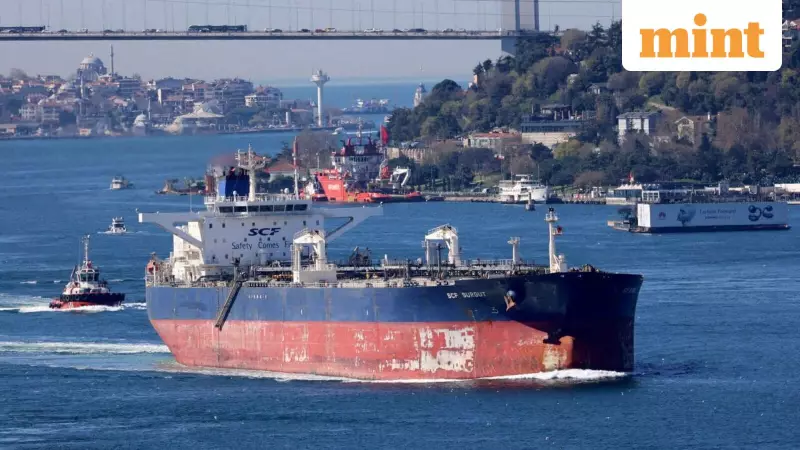
India Maintains Strong Russian Oil Imports Despite Sanctions Pressure
India purchased crude oil worth $2.9 billion from Russia during October, according to recent data from the Centre for Research on Energy and Clean Air (CREA). This significant purchase occurred just ahead of fresh sanctions imposed on Russian entities by Western nations.
The European think tank's report confirms that India continues to be the second-largest buyer of Russian fossil fuels, trailing only China in overall purchases. This positioning highlights India's strategic approach to energy procurement despite increasing international pressure.
US Sanctions Impact Russian Oil Producers
The timing of India's oil purchases comes into sharp focus as the United States imposed sanctions last month on Rosneft and Lukoil, two of Russia's largest oil producers. These measures aim to reduce Kremlin's financial resources for funding the Ukraine conflict.
President Donald Trump has repeatedly claimed that India has reduced its Russian oil purchases following US tariffs. However, the CREA data suggests a more complex picture of India's energy procurement strategy.
The sanctions have already prompted several Indian companies to temporarily halt imports. According to PTI reports, Reliance Industries, HPCL-Mittal Energy Ltd, and Mangalore Refinery and Petrochemicals Ltd have paused their Russian oil purchases in response to the new restrictions.
Detailed Breakdown of India's Russian Energy Imports
In October, Russia exported 60 million barrels of crude oil, with Rosneft and Lukoil collectively accounting for 45 million barrels of this total. India's share of Russian fossil fuel imports reached €3.1 billion (approximately $3.4 billion) during the same period.
The CREA monthly report for October provides a detailed breakdown of India's purchases:
- Crude oil dominated at 81% (€2.5 billion or $2.9 billion)
- Coal accounted for 11% (€351 million)
- Oil products made up 7% (€222 million)
Interestingly, India's Russian crude imports in October increased by 11% compared to September, indicating continued strong demand despite geopolitical pressures.
India's Strategic Shift in Oil Sourcing
Traditionally dependent on Middle Eastern oil suppliers, India dramatically increased its Russian oil imports following the February 2022 invasion of Ukraine. PTI reports indicate that Russian oil imports surged from less than 1% to nearly 40% of India's total crude purchases within a short period.
This strategic shift was driven primarily by the availability of Russian oil at steep discounts due to Western sanctions and reduced European demand. The discounts have sometimes reached $18-20 per barrel below market prices, providing significant economic benefits for India's oil-dependent economy.
The monthly comparison shows some fluctuations in spending patterns. In September, India had spent approximately $4.18 billion (€3.6 billion) on Russian energy, including $2.9 billion on crude oil, $525 million on coal, and $400 million on oil products.
Refinery Operations and Export Patterns
A particularly noteworthy development involves the Rosneft-owned Vadinar refinery in Gujarat, which increased its production to 90% capacity in October. This facility, now sanctioned by both the EU and UK, has been importing crude exclusively from Russia since EU sanctions took effect in July.
The Vadinar refinery's Russian imports recorded a 32% month-on-month increase in October, reaching their highest volumes since Russia's full-scale invasion of Ukraine. However, the refinery's exports have decreased sharply by 47% compared to the same month last year, hitting the lowest levels since May 2023.
While private refiners accounted for more than two-thirds of India's total Russian oil imports, state-owned refineries nearly doubled their Russian crude volumes from the previous month, indicating diverse approaches within India's energy sector.
The CREA report also noted that imports from sanctioning countries decreased by 8% month-on-month from the six Indian and Turkish refineries using Russian crude in October. This reduction was led chiefly by the EU and UK, which recorded monthly reductions of 9% and 73% respectively.
India's continued substantial purchases of Russian oil reflect the country's balancing act between energy security needs and diplomatic considerations in a complex global landscape.






